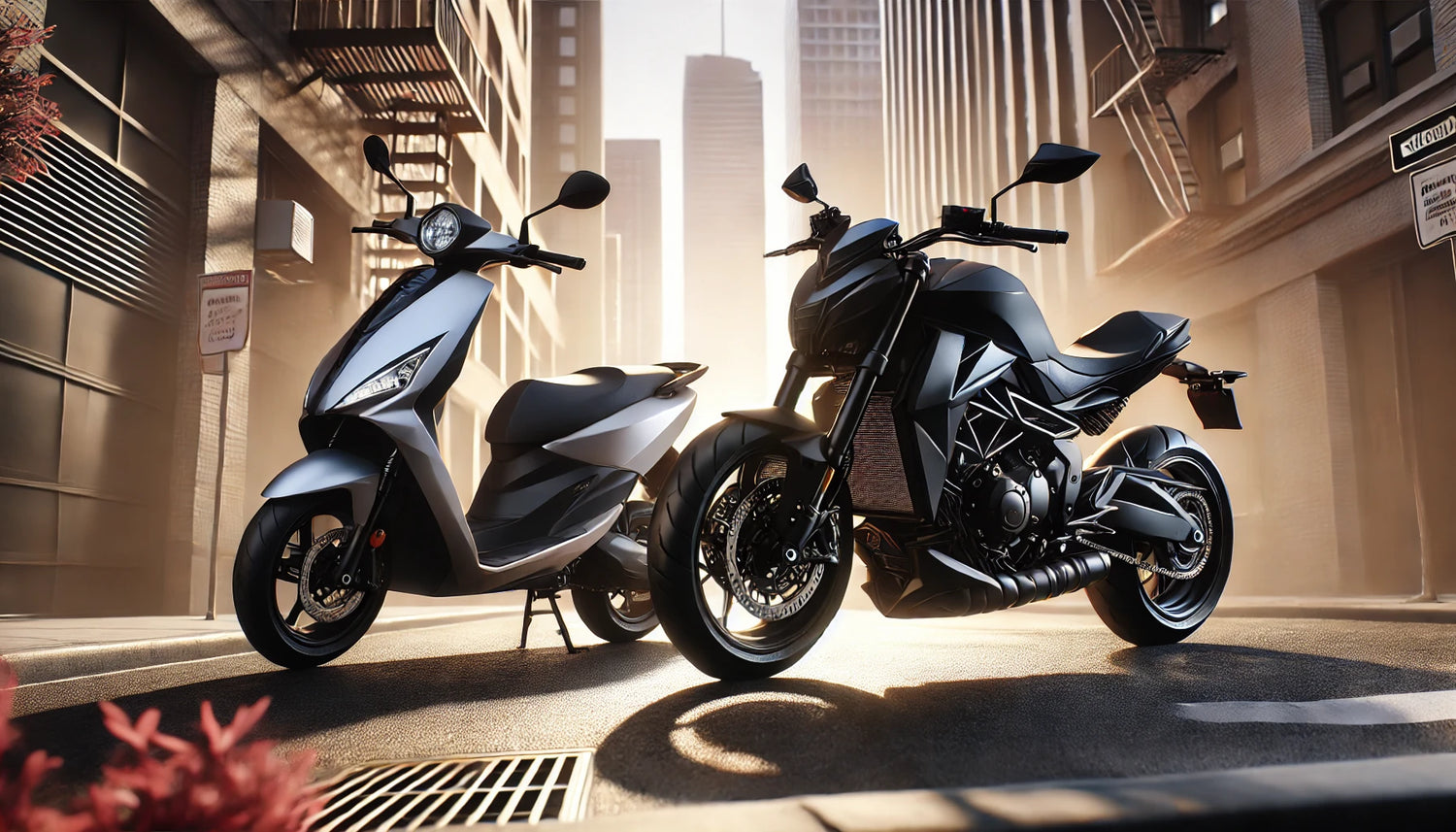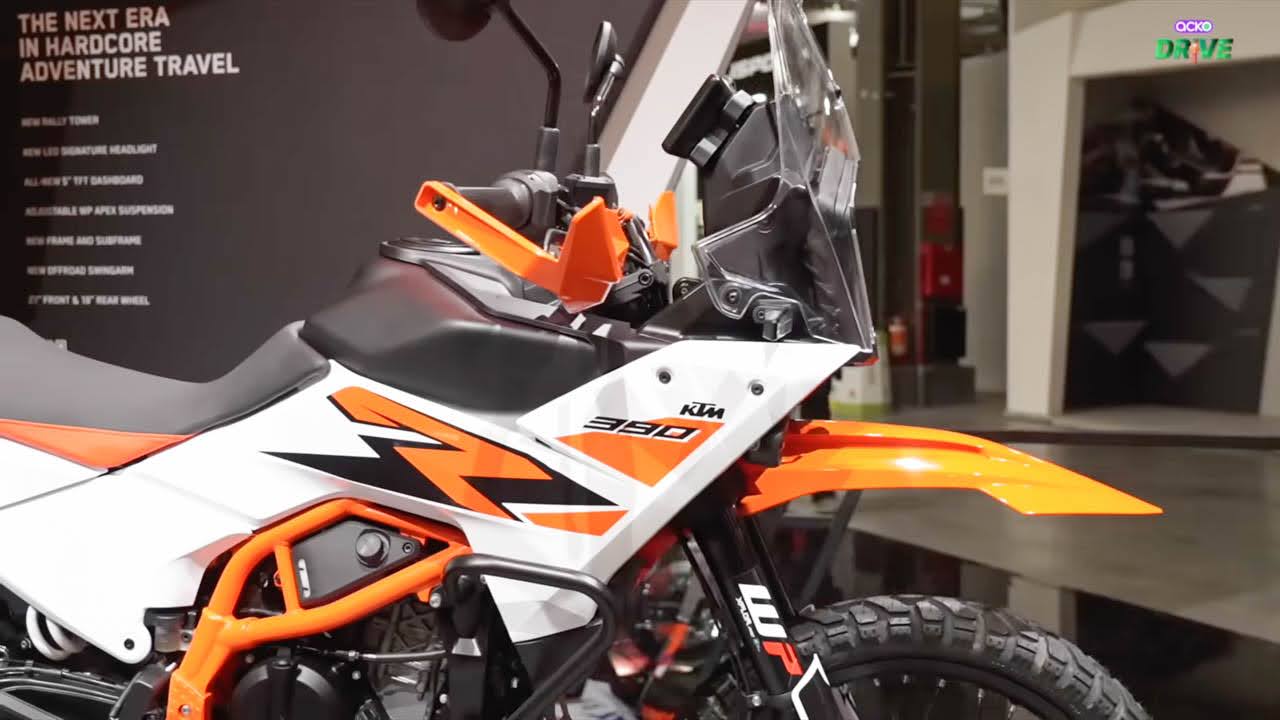The new rider’s cheat sheet


In India, scooters have long been seen as the sensible and practical choice for young riders. They are affordable, easy to handle, and their relatively low speeds offer a perceived level of safety that appeals to concerned parents. For many families, scooters represent a reliable solution for daily commuting, making them the default choice when the time comes to consider a two-wheeler for a teenager or young adult. However, for those who dream of something more than just a way to get around, the idea of owning a motorbike instead of a scooter becomes a topic of debate.
Convincing your parents to see a motorbike as a viable alternative can be challenging. Motorbikes, in the eyes of many, are associated with high speeds, risk, and unpredictability. There's a widespread belief that bikes are inherently more dangerous than scooters, leading to hesitation from parents when their child expresses an interest in them. Yet, the assumption that a scooter is automatically safer, or that a motorbike is solely a machine for thrill-seekers, is often oversimplified. The reality is that today’s motorbikes offer advanced safety features and performance benefits that scooters cannot match.
One of the key factors contributing to the perception that motorbikes are dangerous is the image of high-speed riding and reckless maneuvering. However, modern motorcycles, particularly in the 200cc to 500cc range, are equipped with features designed specifically to enhance safety. Anti-lock Braking Systems (ABS), for instance, have become standard in many motorbikes, significantly reducing the likelihood of accidents caused by wheel lock-up during sudden braking. In contrast, most scooters on the market, especially in the lower price range, do not come with ABS. This makes a strong case for the argument that a motorbike, with its superior braking technology, is better equipped to handle emergency situations.
In addition to advanced braking systems, the structure and design of motorcycles offer inherent safety advantages, especially when navigating India's challenging road conditions. The larger wheels of motorbikes provide greater stability compared to the smaller wheels on scooters. In a country where potholes, uneven surfaces, and unexpected obstacles are common, the larger wheels of a bike are better suited to absorb shocks and maintain balance. Coupled with improved suspension systems, motorbikes offer a smoother and more controlled ride, which translates into increased safety. Scooters, on the other hand, often struggle when it comes to dealing with such road hazards, making them less stable and more vulnerable to accidents on rough terrain.
Another point that often gets overlooked in the motorbike versus scooter debate is their respective performance on highways and longer rides. Scooters are typically designed for short-distance city commuting, and while they can be ideal for weaving through urban traffic at lower speeds, they lack the power and stability needed for longer journeys or highway travel. Motorbikes, particularly in the 200cc-500cc category, provide a better balance of power, control, and endurance. They can maintain stable speeds over long distances, making them safer in environments where higher speeds are required. A scooter may struggle to keep up with the flow of traffic on open roads, putting its rider at a disadvantage.

Fuel efficiency is another area where scooters traditionally win favor with parents. The general belief is that scooters consume less fuel than motorbikes, making them a more cost-effective option. However, with the advancements in motorcycle engineering, fuel efficiency has improved significantly for motorbikes as well. While scooters may offer slightly better mileage for short trips, motorbikes, especially in the mid-range segment, can be just as economical when ridden responsibly. Moreover, the efficiency of a vehicle is highly dependent on the type of roads and distances covered. For those who travel on highways or cover longer distances regularly, a motorbike can often prove more efficient due to its optimized performance at higher speeds.
The long-term durability and maintenance of the vehicle are also important considerations. Scooters may be cheaper upfront, but motorbikes generally offer better value in terms of longevity and reliability. Built with more robust frames and engines designed for a wider range of uses, motorbikes can withstand more wear and tear than scooters, making them a smarter investment over time. For parents who are concerned about getting the most out of their purchase, this can be a significant point in favor of motorcycles. While scooters excel in light daily commuting, they may require more frequent maintenance when subjected to heavier usage or longer distances.
The real challenge in convincing parents often lies less in the technical details and more in the emotional aspect. Parents worry about their child’s safety, and that’s natural. They may view motorbikes as a symbol of speed and recklessness, while scooters represent caution and control. This is where your approach matters most. It’s important to demonstrate that you understand the responsibilities that come with owning a motorbike. Taking a proactive step by enrolling in a rider safety course, for example, can go a long way in reassuring your parents that you are serious about road safety. Learning and showing mastery of road rules, safe riding techniques, and how to properly handle a bike in different conditions can help dispel the myth that motorcycles automatically lead to irresponsible behavior.
Another way to shift the conversation is to highlight the growing number of safety-conscious motorbike riders in India. The biking community has evolved over the years, with many groups focused on responsible riding, adherence to safety gear, and promoting awareness about safe motorcycling. Introducing your parents to this aspect of the culture can help them see that motorbiking isn’t just about thrill-seeking — it’s also about a commitment to safety, discipline, and respect for the road.
At the end of the day, the decision to choose a motorbike over a scooter is about more than just the vehicle itself. It’s about showing your parents that you’re ready for the responsibility that comes with it. While scooters are often viewed as the ‘safer’ option, motorcycles, when ridden with care and respect for the rules of the road, can be just as safe, if not safer, in certain conditions. Motorbikes offer superior handling, stability, and performance, making them more suited to dealing with the real-world challenges of Indian roads. And with today’s advanced safety features, the gap between scooters and motorbikes in terms of safety is narrowing rapidly.
By approaching the conversation with the right information, a focus on safety, and a clear demonstration of responsibility, you can help your parents see that a motorbike is not just a risk — it’s a well-thought-out choice for those who are passionate about riding. While it might take some time and persistence, with the right arguments, you can convince them that a motorbike is the better option for you.





Leave a comment
All comments are moderated before being published.
This site is protected by hCaptcha and the hCaptcha Privacy Policy and Terms of Service apply.